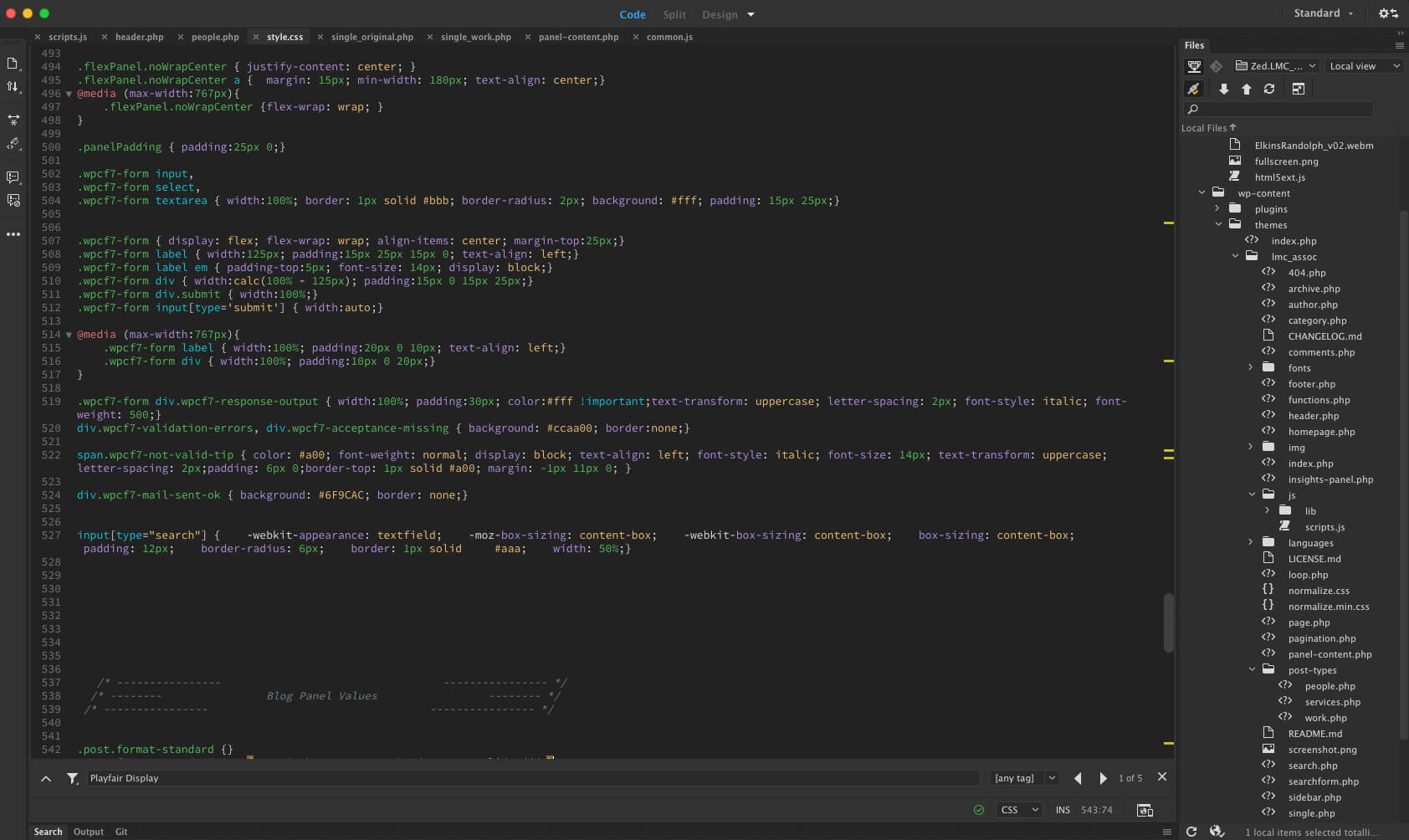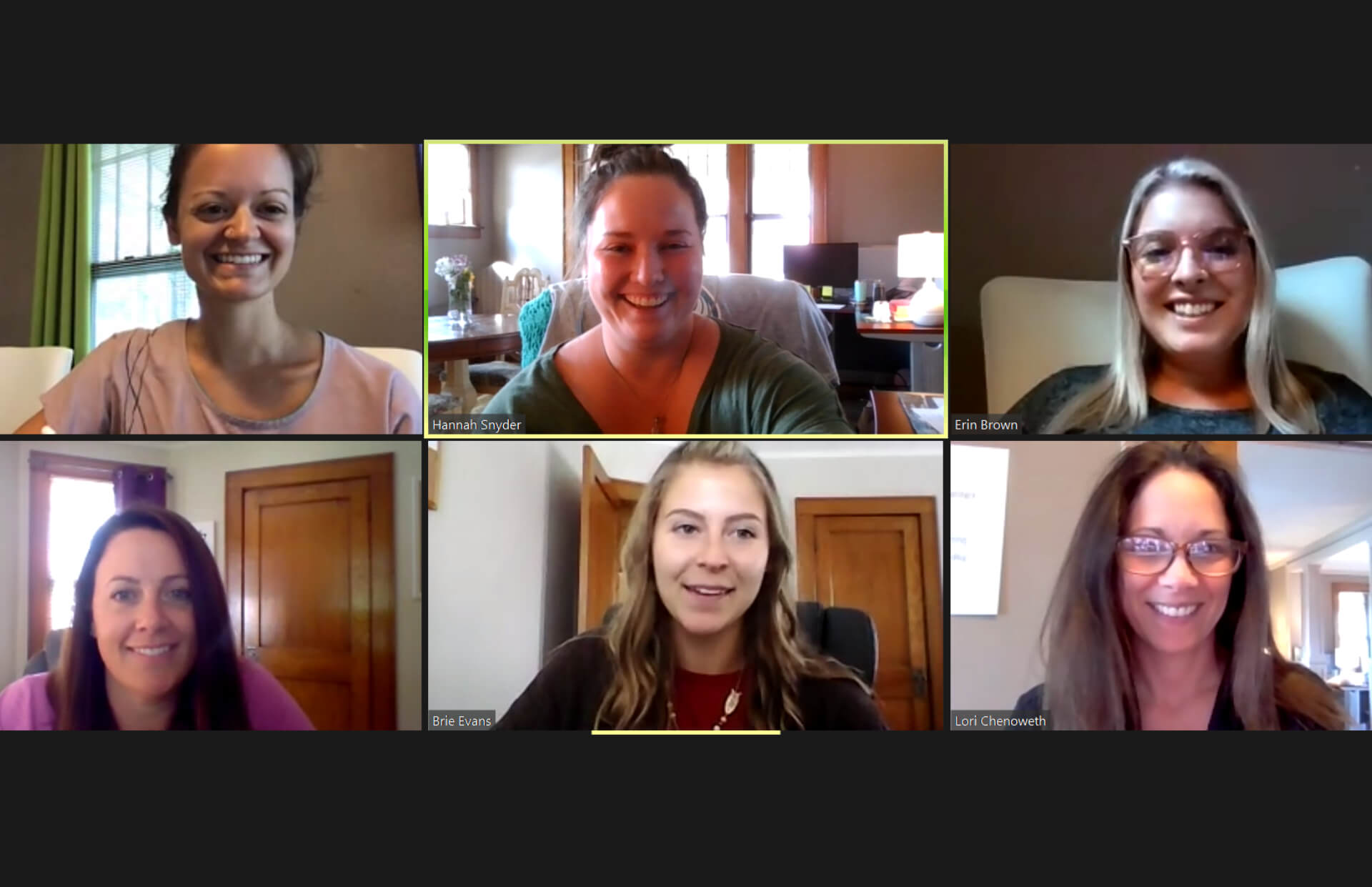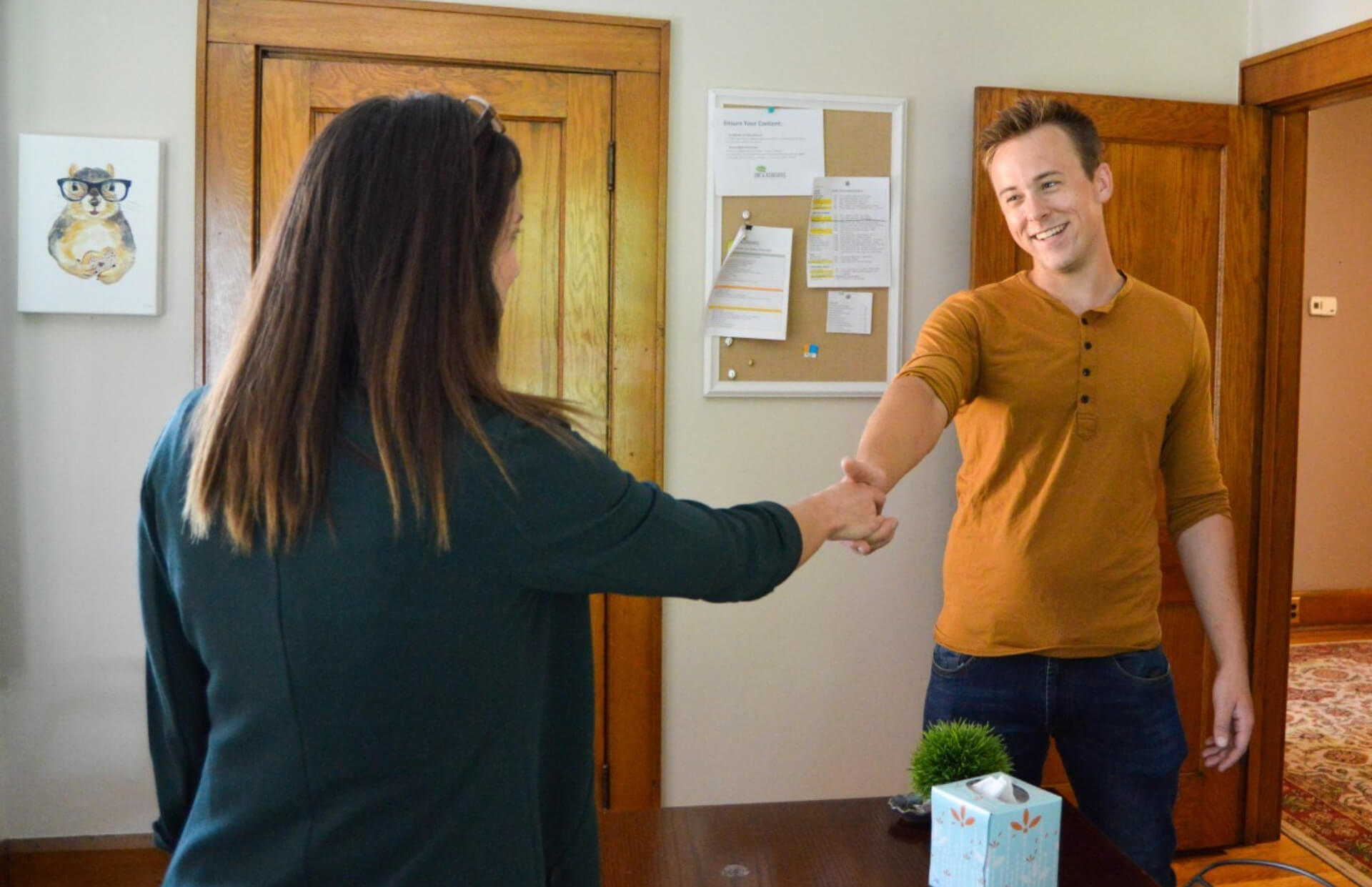
Research is a no-brainer.
We all know it can help refine a marketing strategy and significantly help to understand one’s market environment. In short, it can give you a foundation or springboard for your future marketing efforts.
Without research, we’re just throwing darts and hoping to reach our target audiences based on assumptions. And just to keep things real—our clients have biases—and so do we as marketers. So if this is how you’re currently planning future marketing efforts, just know that it can create some big problems.
Think of it this way …
The moment a client begins to pay a business for their services is the moment that business can no longer think as a customer would.
That’s why we always encourage our clients to invest in research.
When we as marketers have the ability to make decisions based on data—and not on internal opinions—we can then make unbiased decisions with our marketing strategies … and garner better results. Just remember, you should never conduct research just for the sake of conducting research, so before you begin, make sure to have some goals in mind.
Luckily, we’ve got some great goals in mind for your next research project.
Goal 1: Messaging
Looking to finetune your target audience and messaging?
Use data from a messaging research project to get a more accurate picture of audiences’ motivations and feelings.
Before you start investing in the promotion of any “perceived” selling point, make sure you’re promoting features of your products and services that customers actually care about.
Find out the answers to these questions:
● Does your audience even care about “Free Audits”, “No Contracts”, or “Walk-In Care being available 7 days a week”?
● Does your audience prefer a certain service over another?
● If your message was different would your audience be more apt to purchase from you?
This kind of research project will provide you with insights that matter. Instead of putting yourself in a customer’s shoes, and assuming, you’ll learn the exact adjectives customers use to describe their experience with your service or product, learn their motivations for using your service, and more.
LMC in Action
Research Project: Micrologic Messaging – Customer motivations towards buying security systems.
Goal: Find out what motivates customers to purchase a security system for their homes.
How we did it: Thanks to an engaged fan base on Facebook and Instagram, LMC decided to conduct research through social media.
LMC created a contest / giveaway based around the concept of gathering customers’ thoughts, feelings, and motivations towards buying a home security system. Check out the post below:

Results: This research project resulted in over 20 comments that revealed customers’ motivations to purchase a home security system. LMC was able to use these motivations to optimize messaging moving forward. A win-win!
Goal 2: Brand Awareness
Is your brand recognized in your markets and does it resonate with your audience?
Use data from a brand awareness research project to determine how much effort needs to be focused on building brand awareness.
We can’t think of a better way to benchmark your marketing progress than by conducting a brand awareness study.
Find out the answers to these questions:
●How are you perceived in the marketplace?
● How do you compete with competitors?
● Are you top-of-mind?
Use your results to make a plan and strategically push your brand out into your markets. In a year, consider conducting another brand awareness study and analyze your impact and efforts.
LMC in Action
Research Project: Barbour Community Health Association Community Health Needs Assessment Study
Goal: To determine attitudes and knowledge about Barbour Community Health Association and its services among Barbour County residents.
How we did it: Online survey conducted for one month in 2021 and promoted via social media to encourage users in the organization’s service area to complete the survey. Participants who completed the survey had the option to enter a drawing for a PlayStation 5.
Results: The following data helped us to better understand the current awareness of the organization’s brand in the community and where additional focus should be made.
Check out this quick snapshot of survey outcomes:
●Respondents have heard or know the most about BCHA and its clinics. Three in five (62%) know “a lot” about Belington Medical Clinic and half know about BCHA (48%) or Myers Clinic (46%).
●Respondents have heard about BCHA the most via word of mouth (49%) followed by social media (38%). One in four (25%) heard about the facility from a family member or friend.
●Most have heard about BCHA expansion into the local school system. Three in five (61%) have heard “a lot or some” and 38% have heard “very little or nothing at all.
As the first step in the marketing funnel, brand awareness is vital to building a solid foundation to acquire customers. Having a grasp of current and potential customers’ ability to recall and recognize your organization is crucial.
Utilize data from a brand awareness research project to determine what markets or services/products need an extra boost in marketing.
Goal 3: Consumer Behavior
How well do you know your target audiences’ behaviors?
Use data from a consumer behavior research project to make sound decisions when spending your advertising dollars and place media based on your audiences’ behaviors.
Find out the answers to these questions:
● Where do our customers go to learn about our service?
● Who do they trust for referrals?
● How do they prefer to learn about a process, service, or product?
What’s more helpful than knowing how your customer researches a product or service or what resources they use to make travel plans?
LMC in Action
Research Project: Elkins Randolph County Tourism (ERT) Assessment Study
Goal: This research project’s goal was to obtain an understanding of the attitudes and perceptions of out-of-state travelers to better market the area.
How we did it: The assessment study survey was distributed to individuals who live in metropolitan areas within a 5-hour drive of Randolph County. These areas include Washington, D.C., Pittsburgh PA, Columbus OH, Baltimore MD, Richmond VA, and Charleston, Huntington, and Martinsburg WV.
LMC distributed the survey through a targeted ad on Facebook to reach our desired audiences. To encourage people to take the survey, we gave away an iWatch.
Results: The study revealed that nearly half of the respondents describe themselves as “culture finder” travelers. A culture finder is a visitor who wants to engage in the region’s culture, specifically the history, the art, and the lifestyle of the people in different regions.
The study also provided a better understanding of visitors’ interests in outdoor recreation. Nearly 28 percent of the respondents said that when they visited the Potomac Highlands region they came for hiking and biking.
The survey results allowed ERT to confidently move forward with a marketing plan to appeal to these types of travelers and tailor their efforts to strategically entice travelers to the county.
Another rad survey outcome came from the addition of including several logo concepts in the survey. Having assessment participants choose their favorite logo design and color palette helped solidify a direction for ERT’s brand identity. This took the pressure off of the board of directors and staff to develop the ERT brand and allowed the core audience to choose which logo concept resonated with them the most.
So, why research?
To be brief, don’t let your marketing efforts fall short due to assumptions and biases.
All three of the research projects we mentioned above provided valuable insight that LMC could use to optimize marketing decisions. This investment can help strategize your entire marketing plan and back up all those awesome recommendations you’ve suggested to hesitant clients.
So, what are you waiting for? Stop throwing darts and consider investing in research. Connect with LMC today to learn if a research project could benefit you!

How We Build Websites
We build websites to be proud of. These aren’t your typical template, cookie-cutter, or DIY websites. Your business is unique and your website should be too. That’s why we build custom websites, from the ground up.
Read More
Adapting Our Practices During a Pandemic
The uncertainty of COVID-19, paired with the unforeseen challenges of owning/operating a business is enough to make anyone panic. Times are different, and it's only natural that the marketing and advertising atmosphere has shifted as well.
Read More
Behind the Strategy: Barbour Behavioral Health
To showcase BCHA's rapidly expanding behavioral health department, we developed an integrated video campaign to spread the word about these specialized services now available in the community.
Read More

